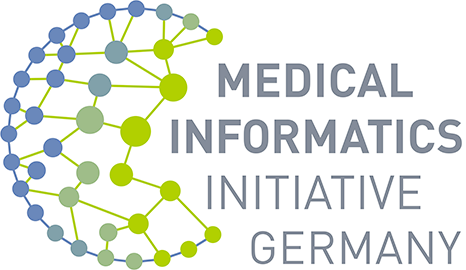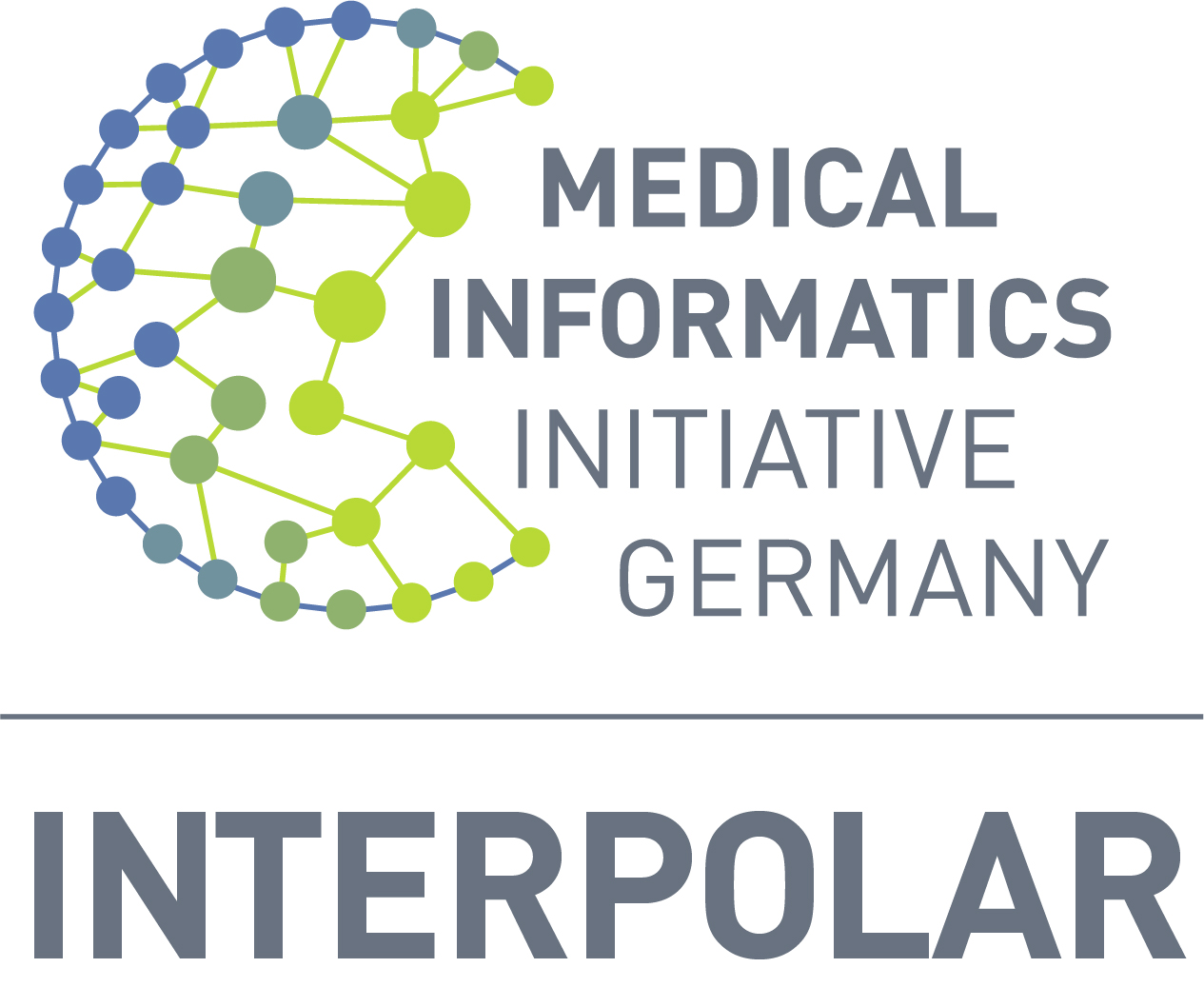Identifying high-risk medication and targeting interventions
The INTERPOLAR use case aims to use an algorithm to identify hospital patients who are at high risk of clinically relevant and manageable medication problems . This allows hospital pharmacists to focus on the patients who will benefit most from their assessment. Expertly selected risk triggers help hospital pharmacists identify patients at high risk for medication problems. This can speed up risk assessment in routine care and focus medication analysis on at-risk patients. Accompanying studies are expected to show that IT-assisted risk assessment significantly reduces the number of medication errors.
The project consists of four phases. First, the technical requirements for consolidating, analyzing and evaluating patient and medication data will be established at each participating Data Integration Center. Then, two intervention studies will be conducted at the participating sites. The final phase will investigate whether the INTERPOLAR setup can be used outside a traditional trial setting with similar effects on drug safety. Finally, the longitudinal data collected will be used to improve algorithms, develop multivariate prediction models and identify cause-and-effect relationships for adverse drug reactions.
Improving drug safety through data analysis
The basis for the intervention studies in INTERPOLAR was the cross-consortium Use Case POLAR. From February 2020 to December 2022, methods were developed and used to collect personal medication data from routine care and drug prescriptions from pharmacies. A selected range of polymedications were classified for potentially inappropriate medication using the available methods. The project also contributed significantly to the mapping of medication and laboratory information in the MII core dataset. INTERPOLAR builds on the results of POLAR and applies them to clinical practice. This will reduce the workload of ward pharmacists and allow patients to receive more targeted care.
INTERPOLAR is funded by the German Federal Ministry of Education and Research (BMBF) from 01/01/2023 to 31/12/2026 with more than 8 million Euros.
Further information:
https://www.smith.care/en/interpolar/
Interview with pharmacologist Prof. Dr Petra Thürmann and pharmacist Dr Beate Mussawy of INTERPOLAR
Contact:
Project Lead:
Prof. Dr. Markus Löffler
Network Coordinator
Head of the SMITH Consortium
Institute for Medical Informatics, Statistics and Epidemiology (IMISE)
Leipzig University
© Universitätskilinikum Hamburg-Eppendorf/Ronald Frommann
Prof. Dr. Renke Maas
Deputy Network Coordinator
Professorship for Drug Therapy Safety and Clinical Pharmacology,
Institute of Experimental and Clinical Pharmacology and Toxicology
Friedrich Alexander University Erlangen
© privat
Prof. Dr. André Scherag
Deputy Network Coordinator
Director of the Institute of Medical Statistics,
Computer and Data Sciences (IMSID)
Jena University Hospital
© Universitätsklinikum Jena
Project co-ordination:
Dr. Daniel Neumann
Scientific Project Management
Institute for Medical Informatics, Statistics, and Epidemiology (IMISE)
Leipzig University
© Swen Reichhold
Jenny Kaftan
Administrative Project Management
SMITH-Office
Leipzig University
© Swen Reichhold
Partners:
- Leipzig University
- FAU Erlangen
- University Hospital Erlangen
- Rhenish Friedrich Wilhelm University Bonn
- University Hospital Bonn
- Heidelberg University Hospital
- TU Dresden – Faculty of Medicine Carl Gustav Carus
- University Medical Center Hamburg-Eppendorf
- Jena University Hospital
- Leipzig University Hospital
- Ludwig-Maximilians-University Munich – Hospital
- University Hospital RWTH Aachen
- Albert-Ludwigs-Universität Freiburg – Faculty of Medicine
- University Hospital of Giessen
- University Hospital Halle (Saale)
- University Medical Center of the Johannes Gutenberg-University Mainz
- University Hospital Schleswig-Holstein, Campus Kiel
- Essen University Hospital
- Witten/Herdecke University
- The Federal Association of German Hospital Pharmacists (associated Partner)






